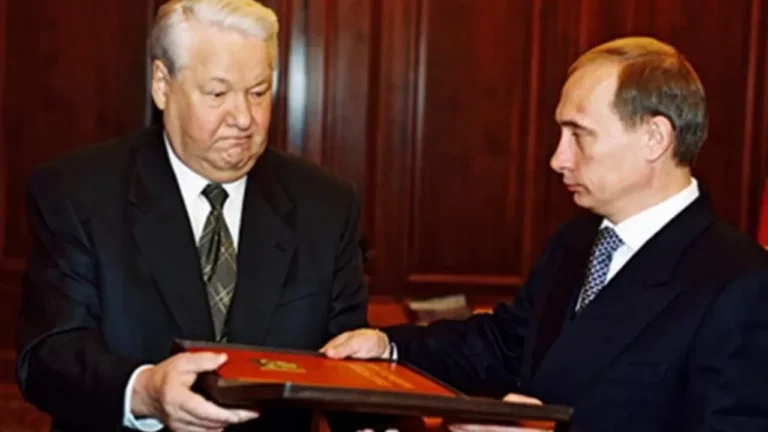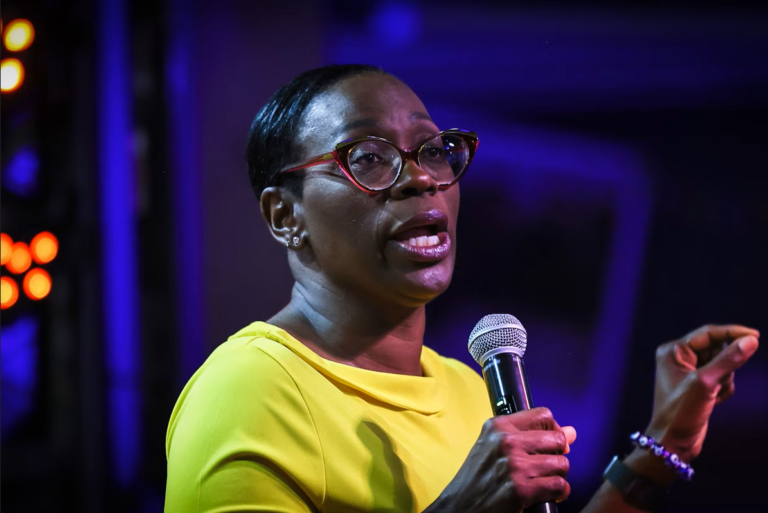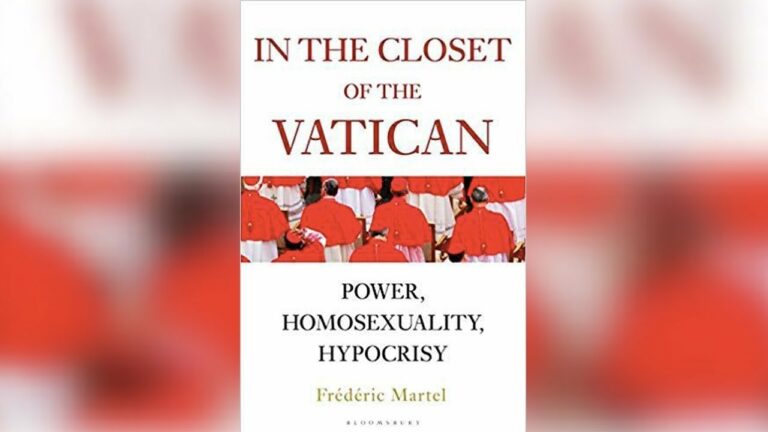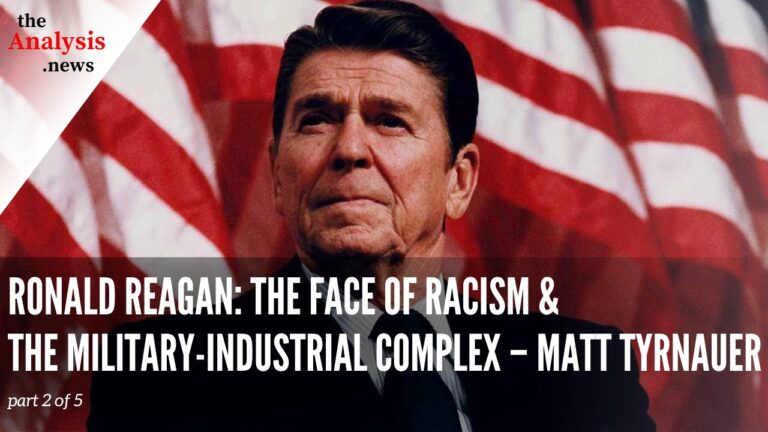This interview was originally released on April 16, 2014. Mr. Lander discusses the achievements and failures of the revolution led by President Hugo Chavez.
PAUL JAY, SENIOR EDITOR, TRNN: Welcome back to The Real News Network. I’m Paul Jay. And welcome back to Reality Asserts Itself.
We’re continuing our series of discussions about Venezuela. We’ve done the history up until the Chávez presidency just after the 2002 coup. We’re going to kind of switch gears a little bit now. Instead of going chronologically, we’re going to ask some kind of overriding questions and look at the contemporary situation and how some of these problems and successes have developed.
So the overriding question’s going to be: what were the aims of the Bolivarian Revolution led by Chávez? What has been achieved and what hasn’t been achieved? And try to dig into why.
So now joining us again in the studio is Edgardo Lander. He’s a sociologist and professor at the Central University of Venezuela. He was one of the main organizers of the World Social Forum 2006 that took place in Caracas. He’s a well-known supporter and critic of the Venezuelan revolution under former president Hugo Chávez. And he did his MA and PhD at Harvard. Before that, he did a degree in sociology at the Universidad Central de Venezuela. He normally is in Caracas, but today he’s in Baltimore.
So thanks for joining us again.
PROF. EDGARDO LANDER, UNIVERSIDAD CENTRAL DE VENEZUELA IN CARACAS: Thanks, Paul.
JAY: So let’s start with the economy and what–especially the Chávez that’s post-coup. And as he becomes increasingly radicalized, what were the aims of the Bolivarian Revolution? What was achieved? And what remains undone?
LANDER: Well, there’s many ways in which you could think about the aims and what has been achieved. You could think of issues in terms of sort of broad conceptions of socialism and what type of socialism and what–or you could look at more sort of detailed situations and sort of impacts in different areas.
So let’s look at the impacts first. It’s certainly true that a lot of things have changed over the last 50 years in Venezuela.
There’s state control over the oil industry, which there wasn’t before, even though the oil industry was always–I mean, for the last decades, controlled by the state 100 percent.
There has been social policies that have led to a very, very significant reduction of poverty and to greater degree of equality. Venezuela’s not today an particularly equal society, but it’s the least unequal in all of Latin America, which is the most unequal continent in the world. So that’s not saying that much, but there has been a significant reduction of inequality.
There has been a really significant transformation of popular political culture. And this is probably the most important thing that’s happened over [incompr.] years. For most of the Venezuelan popular sectors, the political system was alien. It’s something that they’d just given up hope on. They felt totally marginalized. They felt that they had no participation, no involvement, that the political system wasn’t responding to their needs. And that has changed dramatically. People feel empowered. People feel like they can self-organize to get things done. They feel like they have a possibility of a say in their own lives. And that’s huge, and that’s really, I’d say, the most important thing that has happened over those years. The level of political participation and political organization in Venezuela can’t compare with anything previously existing in Venezuela. There’s a widespread level of grassroots organizations around health, around water, around educational issues about–.
So that’s–those are all huge gains.
From a more broader Latin American perspective, the Venezuelan process has had a huge impact. It has led to the possibility of challenging the United States politically and geopolitically. It has led to a new relation of Cuba to the rest of Latin America. It has led to important things like Petrocaribe, for instance. Petrocaribe’s an agreement between the Venezuelan government and most of the Caribbean and a few of the Central American governments in order to sell oil at subsidized prices for countries that are non-oil producers. And with the huge hikes in oil prices in the recent years, [we] would have been living in a very dramatic situation. And thanks to Venezuelan oil prices and to very low interest credits for long periods, they have managed to keep their economies going.
Venezuela has played a very important role in the creation of new mechanisms of integration, both political and economic integration in South America and in Latin America. UNASUR, which is the union of the South American states, was basically promoted by the Venezuelan government. In the case of CELAC, which is the community of Latin American and Caribbean Countries, which is a new organization which is an alternative to the Organization of American States, which includes, basically, all the countries except Canada and the United States. Venezuela has played a major role in the defeat of the free trade association treaty of the Americas, FTAA. Venezuela played a leading role in the sort of shift to the left that made new constitutions in Bolivia and Ecuador possible. So a lot of things have happened that are due to the transformations that began in Venezuela, which probably began with the Caracazos [incompr.] before, with sort of the first big popular reaction against neoliberal policies in the continent.
But there are also a lot of things that haven’t changed. And I say that the main thing that hasn’t changed is the structure of the Venezuelan economy, the rentier state, and the fact that the whole of the Venezuelan society and economy is based on oil. Not only hasn’t it changed, but dependence on oil has increased. As a consequence both of the rise in prices of oil and diminishing levels of exports of non-oil, the proportion of oil in Venezuelan exports has gone from something like 68 percent to 96 percent, which is the current level. So this is a level of dependency on oil that we never had before.
There’s many arguments that can be made in terms of the relation between the aims of the Bolivarian Revolution and this oil-based model, and from my perspective, there are not only tensions but structural contradictions between the aims of the Bolivarian Revolution and the preservation of this oil structure. Those basic contradictions would be the following.
In the first place, if you’re talking about participatory democracy and grassroots organizations and communal state and all sorts of forms of alternative to the representative democracy and the sort of liberal forms of democracy, you need to have productive base for those forms of organization. You can’t have transformation of the political system that only occurs in the polity area; it needs a dimension at the economy, at the productive level. Otherwise, people get organized, they decide what they want to do with their lives, their plans, what are their investments, etc., and then [incompr.] from the state, which, of course, conditions the resources in terms of government policies, not in terms of what the communities might decide. So there’s a huge contradiction between this sort of expansion of forms of participation and forms of popular organization and the fact that there’s no productive base that corresponds to these alternative forms of organization. That’s one enormous issue.
There’s also the fact that one of the main issues in the Constitution is food sovereignty. You can’t have food sovereignty if you have a situation in which this oil structure leads to such an undervalue in the currency that it’s cheaper to import anything than to produce in Venezuela. So dependency on food imports is today as big as ever. And even when the government spends million and millions of dollars to try to increase agricultural production, whenever there’s a conflict of some scarcity or something, they immediately import massively, say, frozen chicken from Brazil, say, and that completely undermines the possibility of creating a chicken industry in the country. That sort of thing happens all the time.
JAY: Why are they having so much trouble getting agriculture going? You would think the amount of revenue they have, instead of just subsidizing people in the barrios, you could create, you know, co-ops and help fund them to do agriculture. And something doesn’t compute here, why they can’t get–couldn’t have gotten a more independent food supply by now.
LANDER: There’s different reasons. There’s a historical reason that has to do with oil again. Agricultural culture in Venezuela was destroyed by oil. People who were from–peasants migrated to the cities. In Venezuelan culture, agricultural production is sort of low-grade in the social scale. People don’t want to be in agriculture. On the other hand, the government has tried to implement several plans for agricultural production, but they always have been top-down. And agricultural production is always characterized by the fact that it’s diverse. It’s diverse because it’s in different regions, different regional cultures, different products, different ecological niches. I mean, it has to be diverse. It has to come from below. The government decided some ten years to create co-ops, for instance.
JAY: Co-ops.
LANDER: Yeah. And it created something like 287 co-ops in a year. It was basically financing for people that just got a piece of paper and sort of filled it in, and this is a co-op, and deal with financing. And, I don’t know, 95 percent of them disappeared within a couple of years.
JAY: Why?
LANDER: Because a co-op is not something you can just create with financing. A co-op is something that requires people’s involvement, some educational purpose, some outreach to the community. I mean, there’s a whole sort of philosophy and sort of type of practice that’s involved in a co-op.
JAY: Please join us for the continuation of Reality Asserts Itself on The Real News Network with Edgardo Lander.
Never miss another story
Subscribe to theAnalysis.news – Newsletter
“Edgardo Lander (born 1942) is a Venezuelan sociologist and left-wing intellectual. A professor emeritus of the Central University of Venezuela and a fellow of the Transnational Institute, he is the author of numerous books and research articles on democracy theory, the limits of industrialization and economic growth, and left-wing movements in Latin America.”














